WASHINGTON – Rep. John R. Lewis, the civil rights icon whose fight for racial justice began in the Jim Crow south and ended in the halls of Congress, died Friday night.
The Georgia lawmaker had been suffering from Stage IV pancreatic cancer since December. He was 80.
The son of Alabama sharecroppers, Lewis served in Congress for more than three decades, pushing the causes he championed as an original Freedom Rider challenging segregation, discrimination and injustice in the Deep South – issues reverberating today in the Black Lives Matter movement.
Along with Martin Luther King Jr., he was an organizer of the March on Washington in 1963, a seminal moment in the Civil Rights Movement that led to the passage of voting rights for Blacks two years later.
He became a community activist and member of the Atlanta City Council before winning a seat in Congress in 1986. He would go on to become a best-selling author and in 2011 was awarded the nation's highest civilian award, the Presidential Medal of Freedom, by Barack Obama, the nation's first Black president. Lewis was elected to his 17th term in November 2018.
"(A)ll these years later, he is known as the Conscience of the United States Congress, still speaking his mind on issues of justice and equality," Obama said in 2011, as he was bestowing the Medal of Freedom. "And generations from now, when parents teach their children what is meant by courage, the story of John Lewis will come to mind – an American who knew that change could not wait for some other person or some other time; whose life is a lesson in the fierce urgency of now."
Fighting for civil rights in Nashville: Rep. John Lewis' example continues to inspire
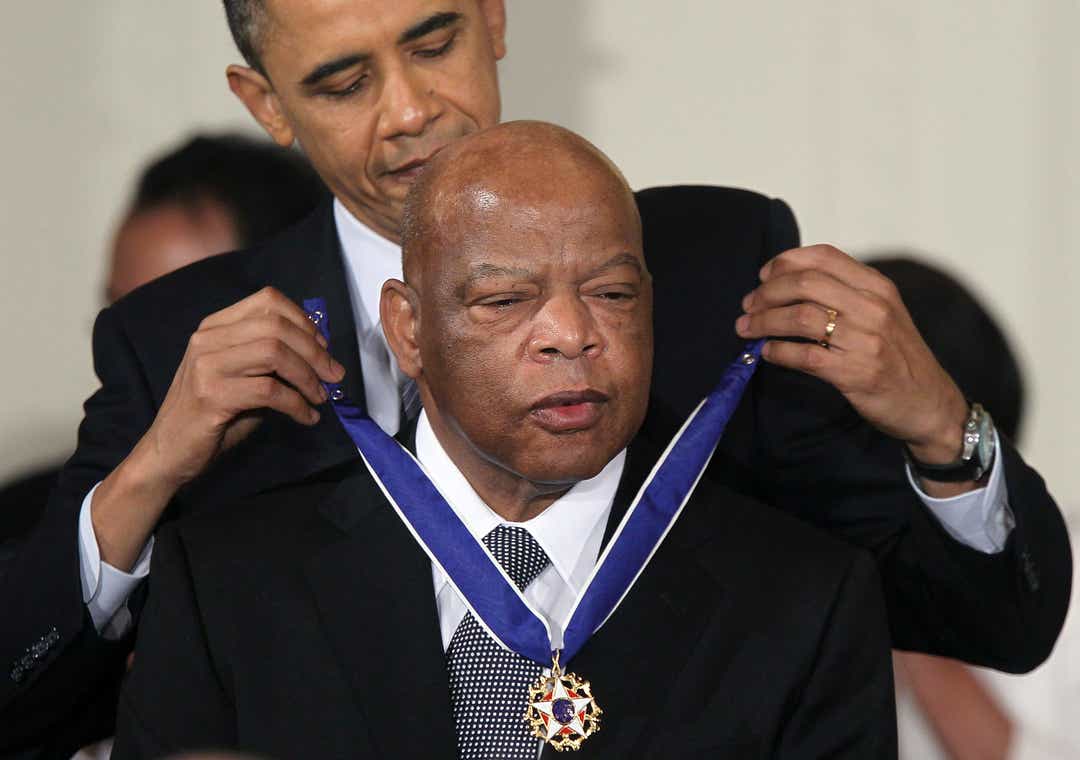
A national figure at an early age
Apart from the Freedom Riders, a group of black and white civil rights activists who rode interstate buses to fight segregation across the South, Lewis was one of the founding members of the Student Nonviolent Coordinating Committee, which advocated for civil rights with demonstrations at lunch counters and voter-registration drives.
After four African American college students sat down on Feb. 1, 1960, at a whites-only lunch counter at a Woolworth's in Greensboro, North Carolina, Lewis helped organize similar sit-ins around the South that drew national attention to the rampant racism that pervaded southern states.
'John Lewis: Good Trouble': 5 lessons from the documentary that still apply today
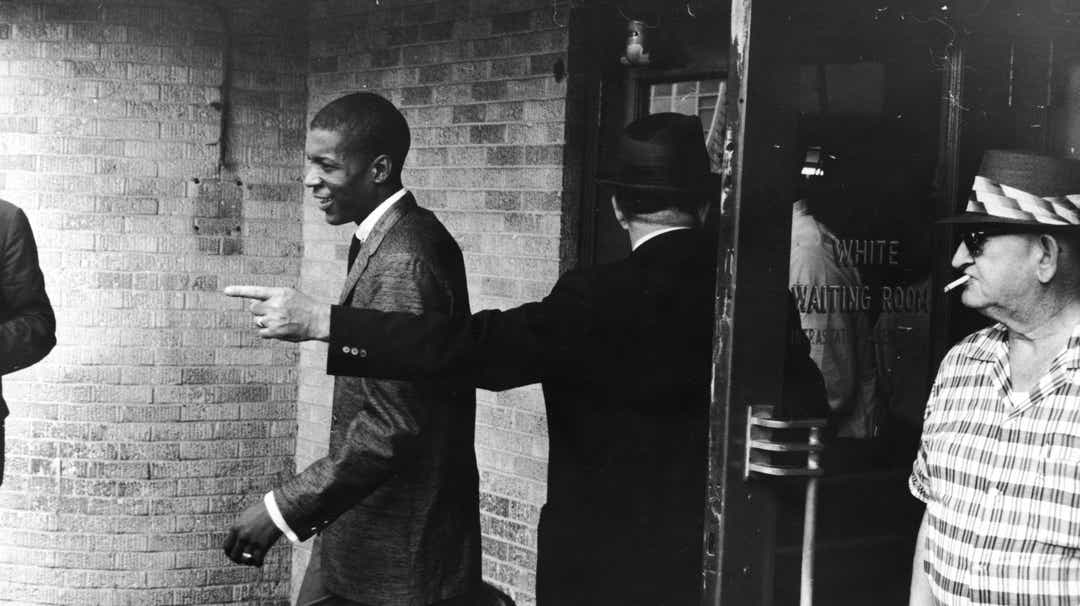
"Some people were heard to say by sitting down these young people are standing up for the very best in American tradition," Lewis told USA TODAY in 2013.
"Martin Luther King Jr. was so pleased. He was gratified, He was deeply moved and touched to see this new militancy on the part of the students," the congressman continued. "He knew then that his message of non-violence and passive resistance would live, and it would be moving around the South, embedded in the very being of these young people."
Arrested, jailed and beaten for challenging Jim Crow laws, Lewis would become a national figure by his early 20s. He later became the youngest of the Big Six civil rights leaders and, at 23, helped organize the March on Washington. There, he provided a keynote speech at the landmark event for civil rights.
"As it stands now, the voting section of this bill will not help the thousands of black people who want to vote," Lewis said. "It will not help the citizens of Mississippi, of Alabama and Georgia who are qualified to vote but lack a sixth-grade education. One man, one vote is the African cry. It is ours, too. It must be ours."
More: Black lives matter: We must live up to Declaration of Independence’s promise
Two years later, he helped organize the voting-rights march in Alabama that became known as "Bloody Sunday," when state troopers attacked demonstrators with tear gas and billie clubs, a nationally televised melee hastened passage of the Voting Rights Act. Lewis' skull was fractured in the demonstration
Lewis remained the last surviving member of the Big Six, which included King, James Farmer, A. Phillip Randolph, Roy Wilkins, and Whitney Young.
His death comes shortly after the release of a new documentary that's giving a new generation of civil rights activists a timely glimpse into his historic contributions.
Director Dawn Porter’s timely documentary, "John Lewis: Good Trouble," premiered in early July as worldwide protests against racism and police brutality sparked by the death of George Floyd have renewed global calls for social justice.
"My greatest fear is that one day we may wake up and our democracy is gone," Lewis, 80, says in the film.
A civil rights leader in Congress
In Congress, the soft-spoken Lewis was known for his work on voting rights. He long fought for more access to the polls, particularly for voters of color. In December, he banged the gavel in the House signaling passage of a voting rights bill he had championed.
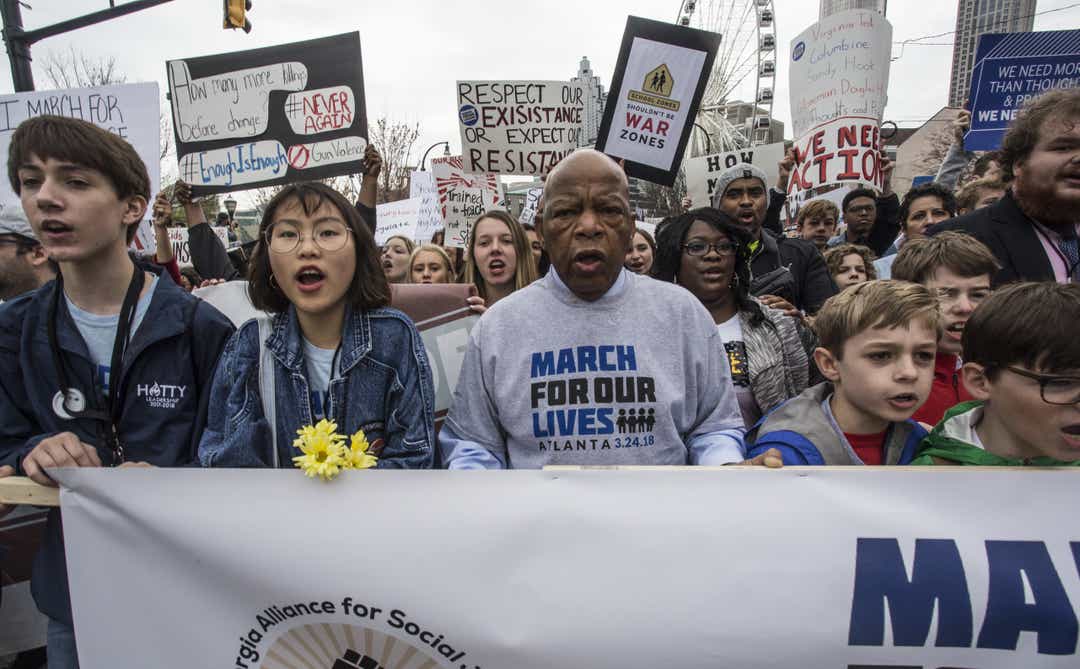
A close ally of Speaker Nancy Pelosi, D-Calif., Lewis served in leadership posts. But the Georgia Democrat's real power came from his stature as a civil rights icon. Lewis was one of the first lawmakers new members wanted to meet and he remained a revered figure, both by Republicans and Democrats, until his death.
"How fitting it is that even in the last weeks of his battle with cancer, John summoned the strength to visit the peaceful protests where the newest generation of Americans had poured into the streets to take up the unfinished work of racial justice," Pelosi said in a statement after Lewis' death. "In the Congress, John Lewis was revered and beloved on both sides of the aisle and both sides of the Capitol."
Lewis often feuded with President Donald Trump, clashing over civil rights and voting rights. In September, Lewis urged his colleagues to begin impeachment proceedings against the president, telling them: "the future of our democracy is at stake."
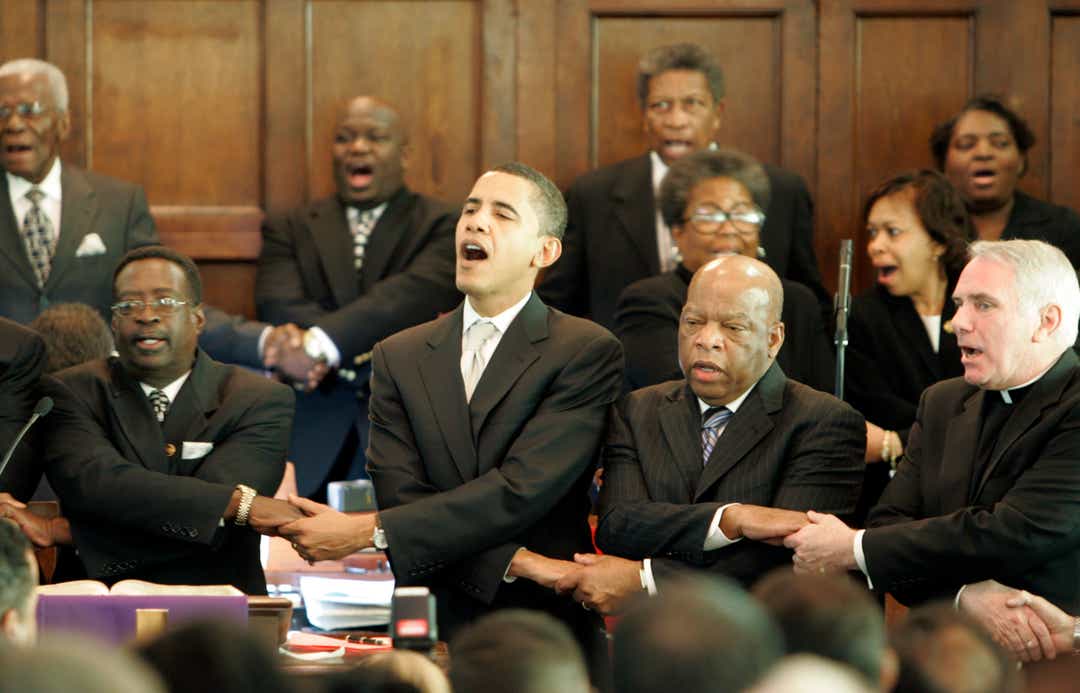
He boycotted Trump’s inauguration after the president attacked him and his congressional district via Twitter. Lewis called Trump's presidency illegitimate because of the Russian government's clandestine campaign to sway the election in his favor.
In 2017, the congressman boycotted the opening of a civil rights museum in Mississippi because Trump was invited. Lewis and other members of the Congressional Black Caucus attended a separate ceremony.
Lewis called out Trump for his tweet last year telling four congresswomen of color to "go back" to their countries of origin.
More: 'Man of character and dignity': Civil rights icon John Lewis endorses Joe Biden on Wisconsin primary day
"I know racism when I see it,’’ Lewis said in response.
He embraced the Black Lives Movement, telling the Washington Post in an interview in June that he was “inspired” to see throngs of people marching in the United States and around the world.
Last month, in one of his last public appearances Lewis joined Washington, D.C. Mayor Muriel Bowser at Black Lives Matter Plaza. The two posed for pictures where the yellow letters of Black Lives Matter are painted on the street leading up to the White House.
A best-selling author, he championed civil rights throughout his career. His graphic memoir, "MARCH," won the National Book Award for children's literature in 2016.
He led an annual pilgrimage back to Selma, Alabama, where he and other members of Congress marched across the Edmund-Pettus bridge to commemorate the 1965 march from Selma to Montgomery.
This year's participants weren’t sure Lewis would attend because of his health, yet he still showed up and told the crowd surrounding him: "We must vote like we’ve never voted before. That’s a challenge for us still.”
“I think it’s so fitting and so right that this group is able to go there and to go back to that site … where (King) said, ‘I have seen the Promised Land. I may not get there with you, but as a people we will get there,’” Lewis told USA TODAY.
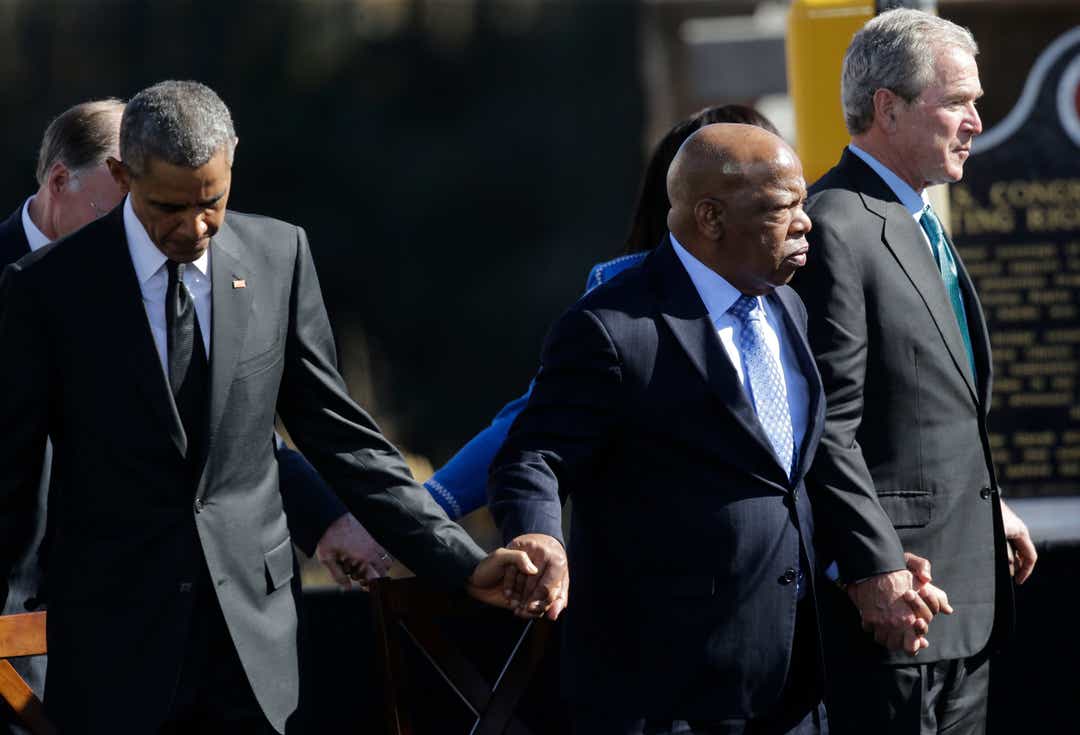
In 2016, Lewis led a sit-in of Democratic lawmakers on the House floor, halting legislative business as they demanded a vote on gun control legislation.
“What is the tipping point? Are we blind? Can we see? How many more mothers, how many more fathers need to shed tears of grief before we do something?" he said then.
Lewis was married 44 years to Lillian Lewis, who died in 2012 at age 73.
Contributing: William Cummings, Cydney Henderson
"original" - Google News
July 18, 2020 at 10:39AM
https://ift.tt/3hghS5B
Rep. John Lewis, a civil rights icon who began pushing for racial justice in the Jim Crow south, has died - USA TODAY
"original" - Google News
https://ift.tt/32ik0C4
https://ift.tt/35ryK4M
Bagikan Berita Ini














0 Response to "Rep. John Lewis, a civil rights icon who began pushing for racial justice in the Jim Crow south, has died - USA TODAY"
Post a Comment